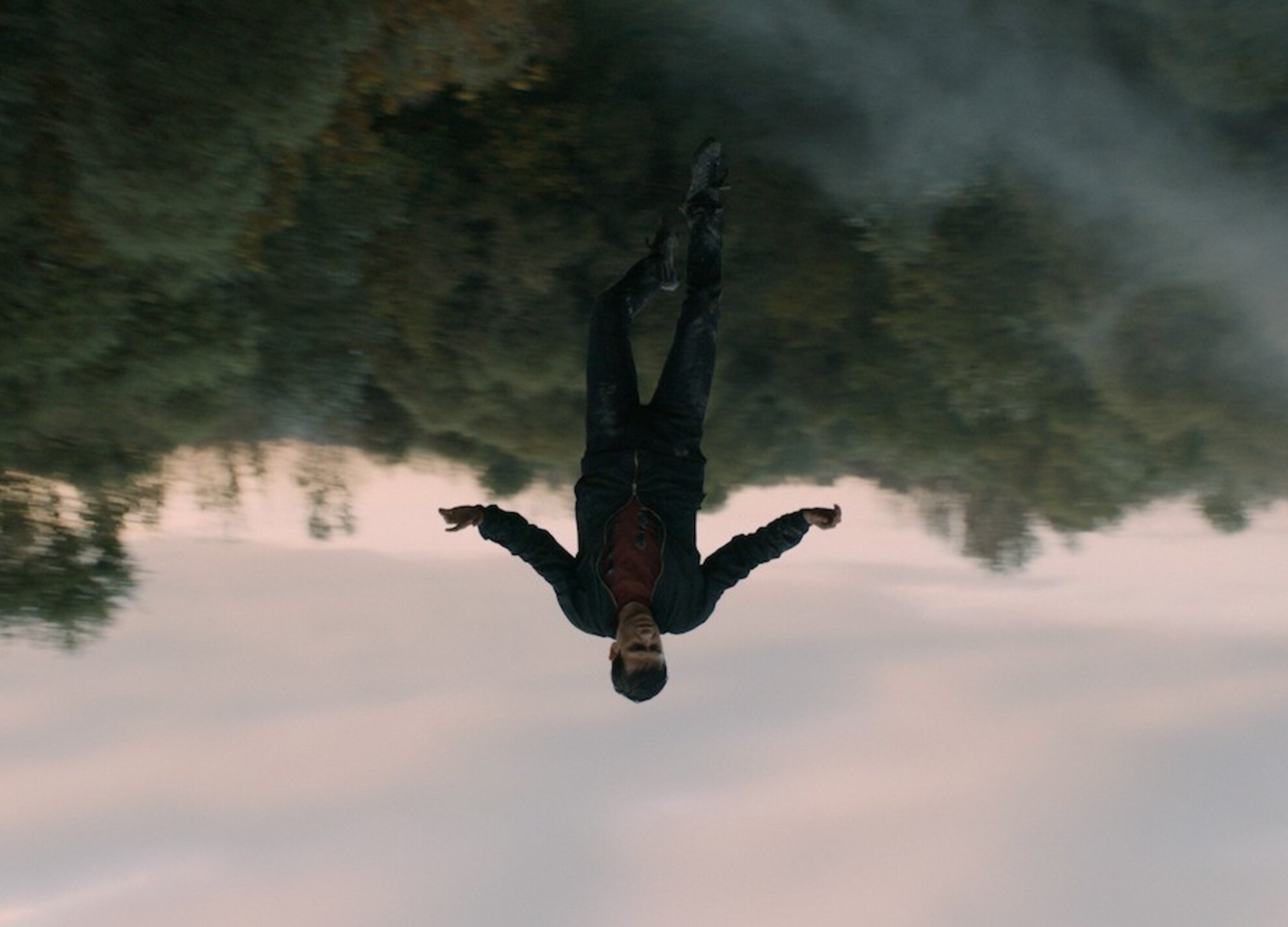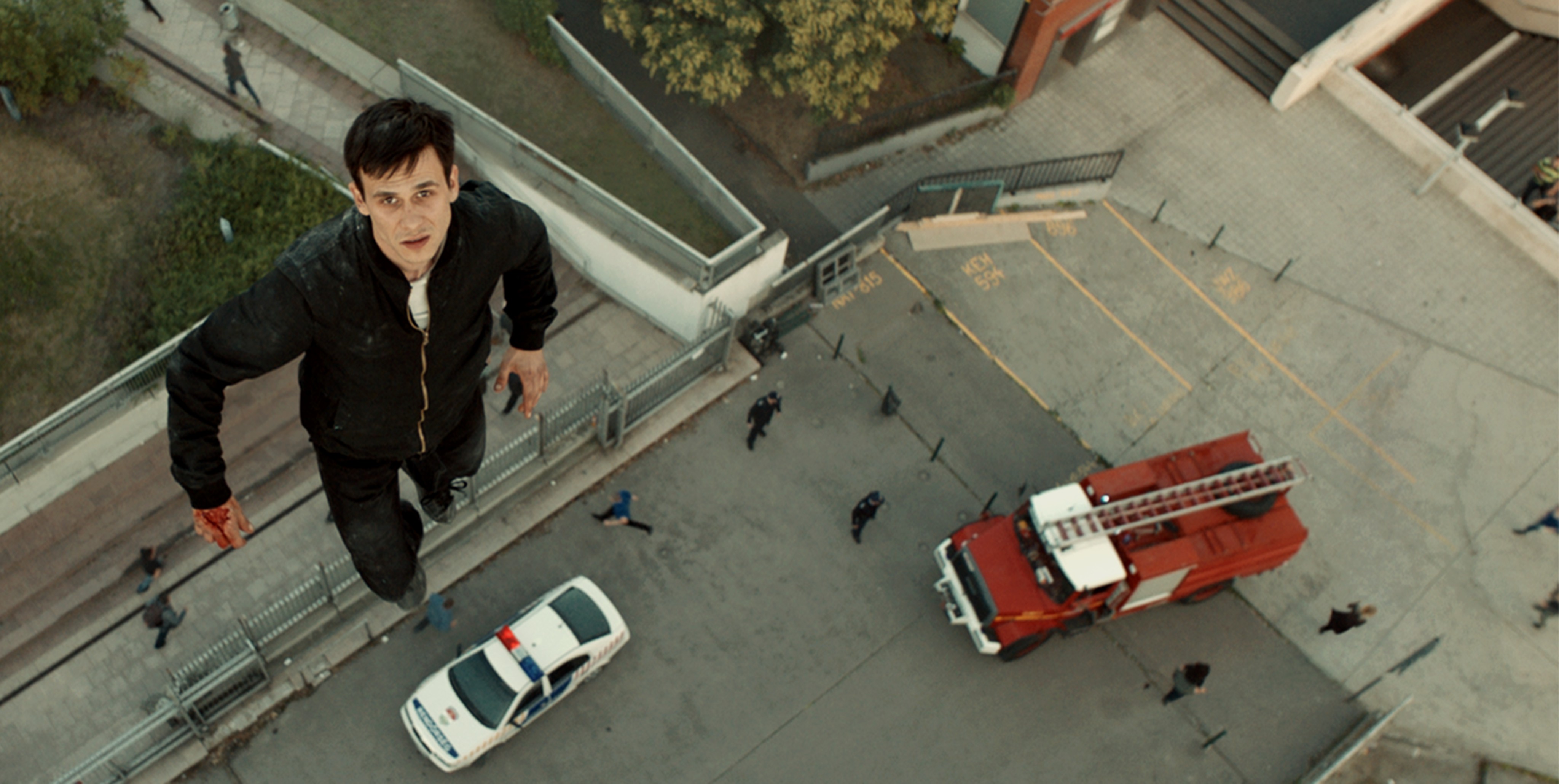After watching the trailer for Jupiter’s Moon, we thought that this film was going to be a Hollywood-type blockbuster, and based on the topic it explores, we presumed that it would be a moralizing movie about the ongoing European refugee crisis. However, neither of these assumptions turned out to be correct in the end. In the film, a Syrian refugee, Aryan (Zsombor Jéger), is shot at the Serbian-Hungarian border while trying to escape, and for some reason gains superpowers: not only does he stay alive, but becomes able to fight the power of gravity by levitating anytime he wants. The doctor of the refugee camp, Gábor Stern (played by Georgian actor Merab Ninidze), whose career went off track due to a deadly medical-malpractice incident – does not believe his eyes at first sight, but soon decides to exploit Aryan’s extraordinary abilities. (He does not really care too much about points of honor anyway, as he smuggles refugees out from the camp for significant sums of money on a regular basis.) He takes Aryan to wealthy Hungarian patients as the embodiment of a healing angel, and benefits from the boy who occasionally can also use his powers to destroy. However, the policeman who shot Aryan (György Cserhalmi) rightfully worries about having to account for his deed, and starts chasing both the refugee and the doctor.
Jupiter’s Moon brings tears to our eyes and amazes us at the same time, as it has everything that a modern-day film might need: captivating long shots, a brilliant car chase, and catastrophes that could also stand up in a Christopher Nolan film. Cameraman Marcell Rév created an excellent-quality visual world alongside visual designer Márton Ágh, while leaving enough space for a poetic imagination. They did all this while shooting on 35mm film and with minimal CGI. For instance, the film crew used cables to lift Zsombor Jéger up about 30-40 meters above the street during the shooting. In the meantime, the film still holds a characteristic Hungarian touch; locations, scenes, and faces typical of Budapest appear in their own miserable or elegant manner, in a way that an intellectual dreariness that is sometimes present in Hungarian films still does not overshadow the movie’s mood.

However, we have to agree with those foreign critics who say that Jupiter’s Moon lacks a coherent message, and who think that even though the visual world is excellent, the story does not quite match up to it. The complicated system of symbols tries to address the questions of faith and wonder at the same time about our “alienated world”, while also speaking about the ethical dilemmas of the recent refugee crisis, European mentality, and corrupt social and economical relations. The sci-fi superhero leading character – who evokes the stories of X-Men films – remains mysterious throughout the film, and the script leaves it to the audience to answer some of the questions raised; this is quite possibly on purpose, as is the situation in real life when it comes to faith. The film basically depicts the character development of the doctor, or at least that was the most obvious for us, while a religious redemption is also present in that Stern recovers from a cynical state, and by the end of the film the opportunistic doctor is even ready to make sacrifices.

Merab Ninidze’s emotional acting helped to unfold this storyline, as well as the scenes reflecting on the events of the recent past. Instead of answering the questions, we found intriguing the realistic presentation of refugee camps, corruption, and humane solutions, as well as that in the end it all comes down to policemen and health workers. It was especially soul-stirring to see the film’s reaction to recent threats of terrorism; since watching the film we have used Budapest’s metro lines many times, and just cannot forget about that powerful scene with explosives.
Jupiter’s cold and icy moon is called Europea.
Besides trying to tell a tale about faith and miracles through a strange and peculiar friendship, with his film, Hungarian director Kornél Mundruczó also meant to reflect on the current refugee crisis that is sometimes so absurd and unbelievable that we would maybe not even be too surprised if someone did actually become capable of levitating after all.





